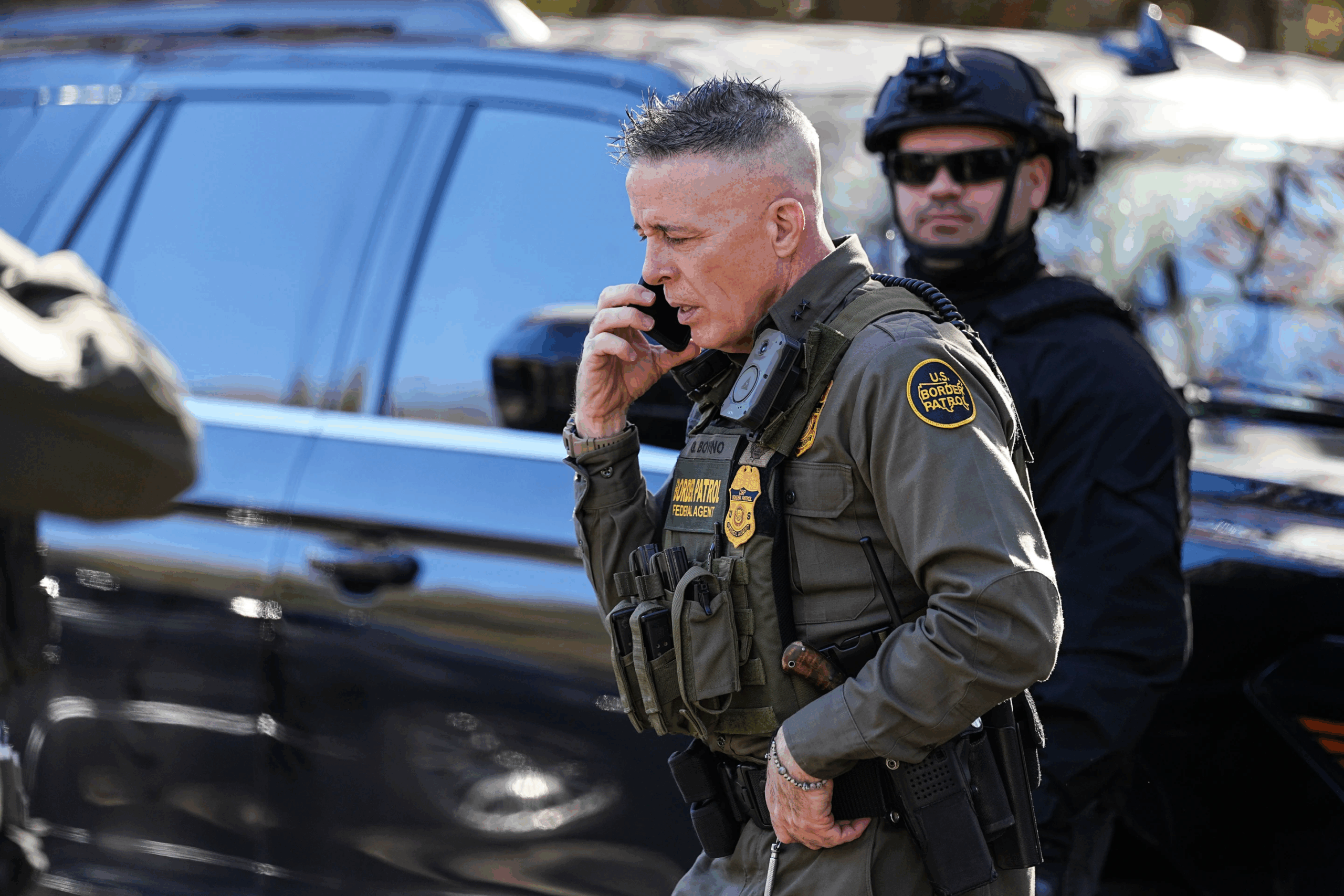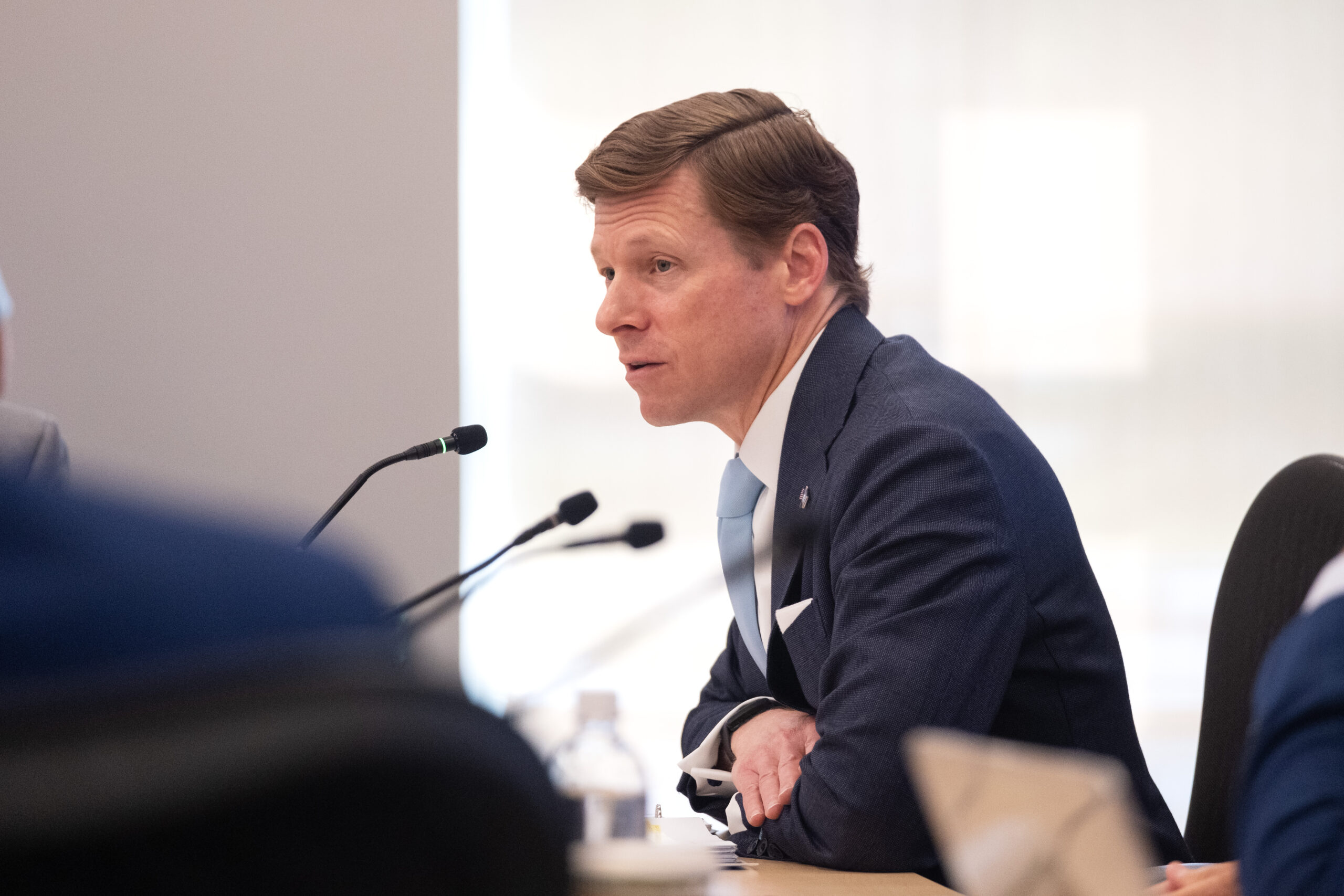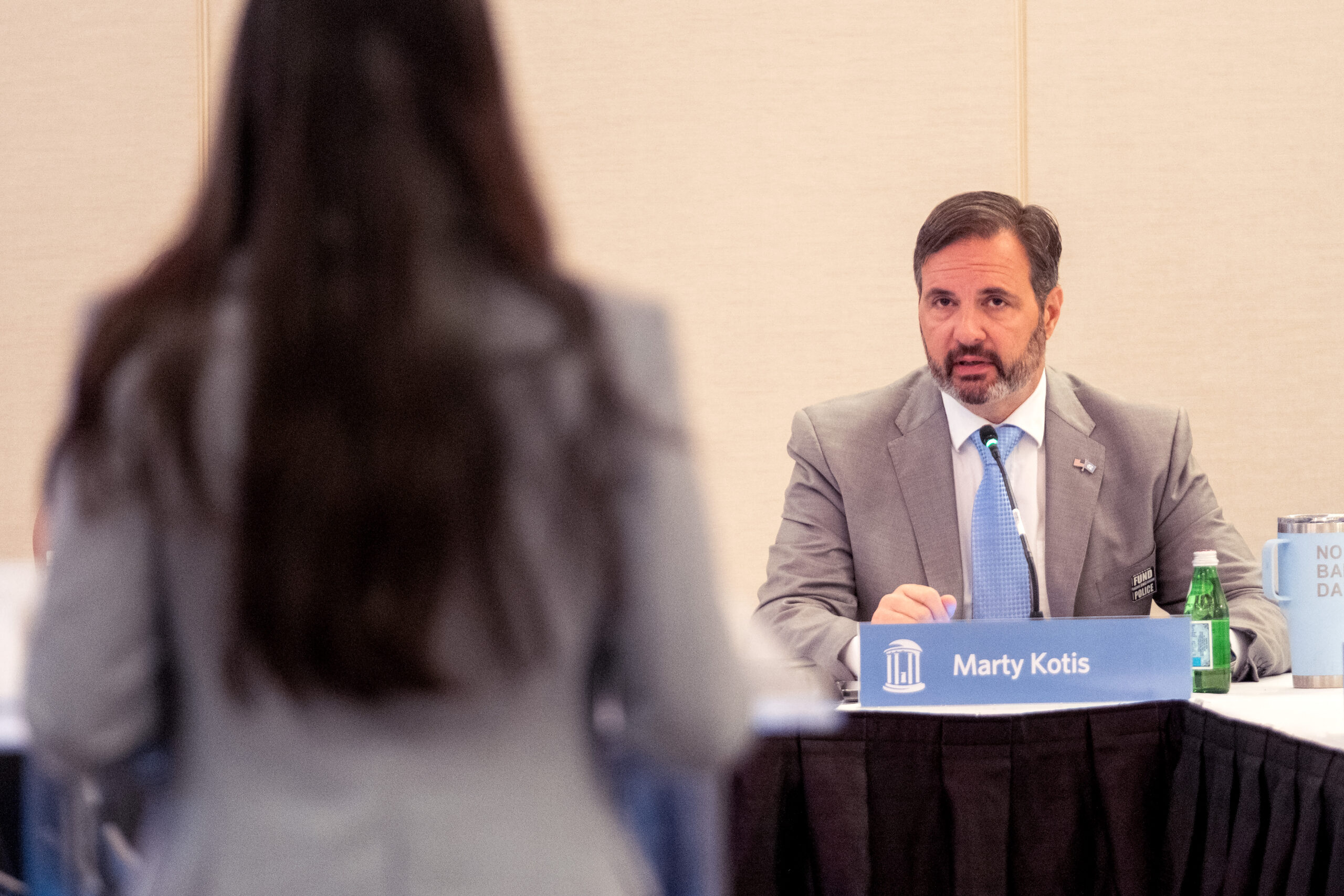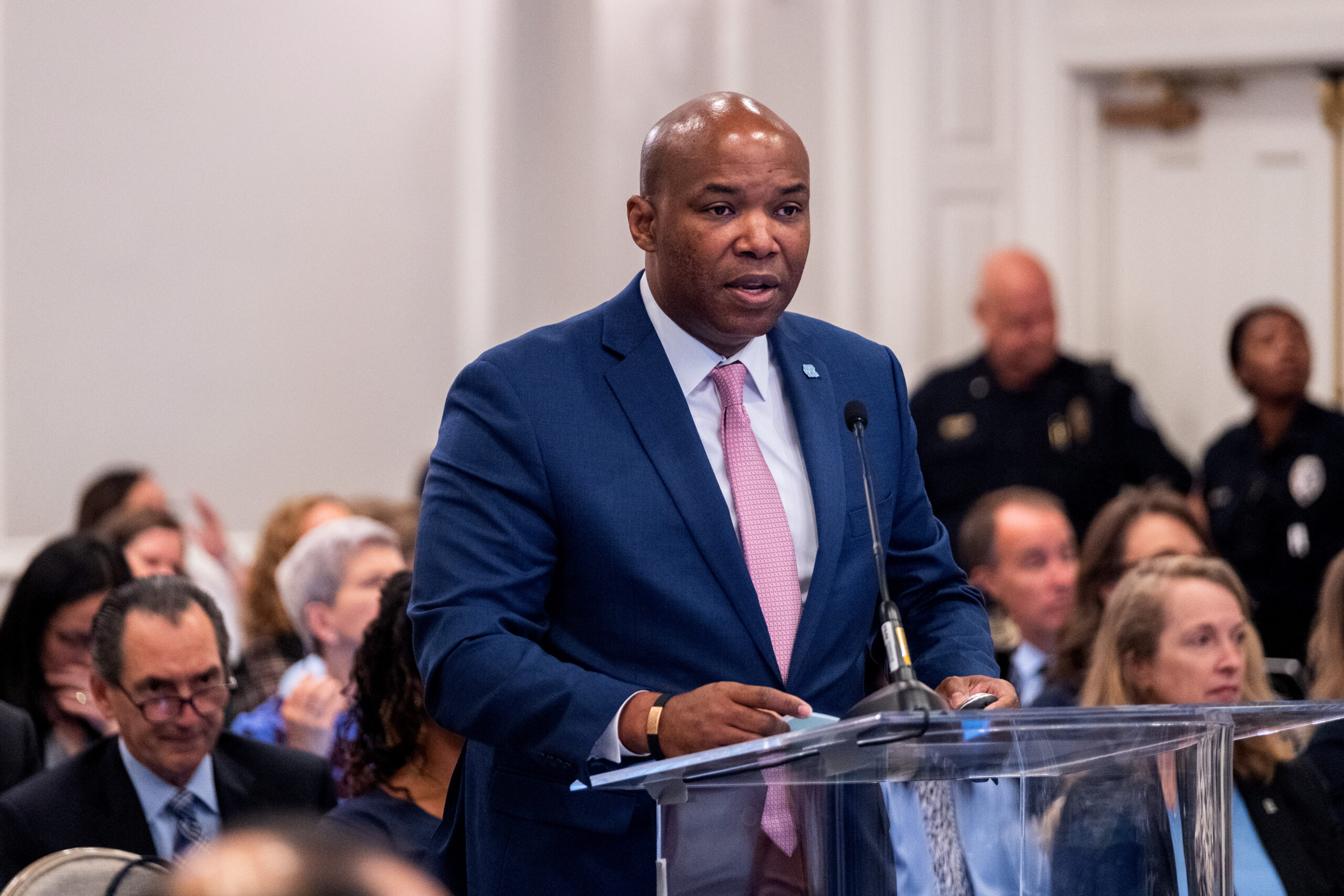North Carolina operates under a law that prohibits any county or municipality from restricting local law enforcement’s ability to cooperate with federal immigration officials.
Therefore, there are no technical sanctuary cities in the state.
However, local law enforcement officials choose what to prioritize in their respective towns.
But Senate Bill 145 is moving through the General Assembly, that aims to keep North Carolina operating under this law.
The bill is similar to one that was filed last month, that aimed to remove city street funding and sales taxes on video programming from counties that don’t comply. It also aimed to ban community or faith ID’s often issued to immigrants by non-profits and faith groups.
This new bill will do that, but also specifies that schools in the North Carolina system will have to disclose immigration status of students on request. The American Civil Liberties Union (ACLU) of North Carolina has suggested it could force schools to choose between complying with state law or with the Federal Family Education Rights and Privacy Act (FERPA).
UNC Chancellor Carol Folt said after a January Board of Trustees meeting the school can’t operate as a sanctuary school because of existing state law, but officials can offer legal advice and support to students who need it.
“We’ve already come out and said, ‘Of course we can’t. It’s against the law in the state of North Carolina,'” she said. “And so, we’re a part of that state infrastructure, but what I tend to focus on is what can we do for students? How can we continue to help students if they have concerns in the way we always have? And I think that’s really been the productive way to go about that.”
Dwight Stone is the chair of the UNC Board of Trustees. He said the UNC system’s job is to support all students, but also operate under federal and state law.
“Our job is to educate and instruct our students in whatever advice that we can give them,” he said. “But it is against the law and we will go with our state law, certainly.”
The bill also specifies that if an institution is in violation of the state law, the UNC system president will need to conduct an investigation, and notify the Board of Governors of the findings. The Board of Governors and the president will then revoke certain responsibilities from that institution’s chancellor.
UNC System President Margaret Spellings has previously advocated for students enrolled in Deferred Action for Childhood Arrivals (DACA), and has noted in an editorial for the Washington Post that DACA students often pay out-of-state tuition at universities. Spellings also comes from Texas – a state that grants in-state tuition to undocumented students.
Senate Bill 145 passed in the Judiciary committee in March, and will be heard next in the Finance committee.
Related Stories
‹

North Carolina Bill Compelling Sheriffs to Aid ICE Advances as First Major Bill This YearA bill to make North Carolina sheriffs comply with requests to pick up jail inmates potentially in the country illegally is progressing.

NC Senate OK's Bill Telling Sheriffs To Act on ICE RequestsRepublican legislation ordering North Carolina’s sheriffs to note the immigration status of jail inmates and assist federal agents who want to detain them received state Senate approval on Thursday. The legislation passed along partisan lines after a divisive debate that touched on race and ethnicity. The bill generally echoes a 2019 measure that Democratic Gov. Roy Cooper […]
![]()
Interpreting the Legality of Federal Immigration Operations — Dec. 8, 2025The Hill's Andrew Stuckey speaks with Chapel Hill Immigration Attorney Chris Barnes and University of North Carolina Law Professor Rick Su on Monday, December 8. They discuss the specific implications of federal immigration enforcement actions in the Triangle region in November. They also discuss the larger legal ramifications of recent immigration enforcement, both in national politics and as it affects people locally. They share insights on the current legal question marks surrounding immigration in the United States, talk about who is affected most by these policies, what they expect to see in 2026, and more.
![]()
On Air Today: Eliazar Posada-Orozco on the Community's Response to ICE OperationsIn the wake of last week's federal immigration enforcement operation, Eliazar Posada-Orozco joins 97.9 The Hill's Brighton McConnell on Monday, Nov. 24 to share his own experience.

ICE Has Arrived In The Triangle. Here's A Guide of Resources to UseUnited States Immigration and Customs Enforcement, or ICE, officers and Border Patrol agents are active in the Triangle on Tuesday, with confirmed arrests and sightings in Raleigh and Durham. Below is a guide of resources compiled by Chapelboro to track confirmed ICE sightings, track any detainees and stay informed about your rights. Here is what […]

Orange County Elected Officials Share Support of Local Families, Speak Out Against ICE RaidsElected officials in Orange County affirmed their support of immigrant community members and criticism of federal efforts that recently brought U.S. Immigration and Customs Enforcement officers and Border Patrol agents to North Carolina through a statement on Tuesday. As part of President Donald Trump’s administration’s policy goal to crack down on illegal immigration — and […]

NC Sen. Graig Meyer on State and Federal Impasses, Healthcare Premiums, And The Redistricting BattleNorth Carolina District 23 Sen. and Democrat Graig Meyer joined 97.9 The Hill to discuss the ongoing impasse at the state legislature.

After Debate and Dissent, UNC Trustees Pass Tuition Increase for Undergrads with Split VoteAfter criticism of the idea on Wednesday and passionate debate on Thursday, the UNC Board of Trustees approved an increase in tuition and fees for all incoming undergraduate students with a split vote.

UNC Trustees Push Back on Proposed Tuition Increase, Ask For Higher Hikes on Out-Of-State StudentsThe UNC Board of Trustees balked at an initial proposal to consider increasing undergraduate tuition for the first time in nine years.

After Death Of Charlie Kirk, UNC Board of Trustees Reviews Upgrades To Campus SecurityFollowing the assassination of conservative commentator Charlie Kirk, the UNC Board of Trustees aims to bolster campus security.
›









